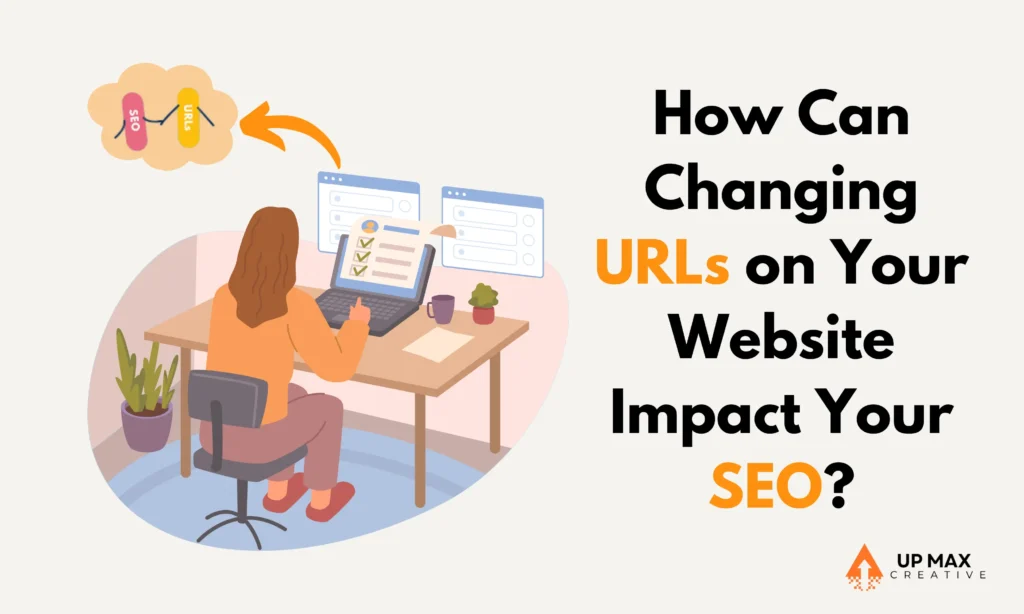
Changing the URLs of a website is a common task that can occur during site redesigns, platform migrations, or simply in an effort to optimize search engine visibility. However, altering URLs can have significant implications for your search engine optimization (SEO) efforts. Understanding these impacts and how to manage them effectively is crucial for maintaining, or even enhancing, your website’s search rankings.
How Changing URLs Affects SEO
URLs play a critical role in SEO. They help search engines understand what your page is about and also contribute to user experience. Here’s how changing them can impact your SEO:
1. Loss of Ranking
Search engines index URLs and associate them with specific page qualities, such as content relevance, backlinks, and historical traffic. Changing a URL can disrupt this association, causing a temporary or even permanent drop in rankings if not handled correctly.
2. Disruption in Traffic
If external sites link to a page on your website, changing the URL without proper redirection will lead to broken links. This not only impacts user experience but can also reduce the amount of page authority transferred from these links, leading to a decrease in traffic.
3. Impact on Backlink Quality
Backlinks are a major ranking factor. When URLs change, the backlinks pointing to the old URL will no longer pass authority to your page unless you redirect them to the new URL. Failing to implement redirects properly can result in a loss of backlink benefits.
Best Practices for Changing URLs
To mitigate the risks associated with changing URLs and to ensure a smooth transition, follow these best practices:
Implement 301 Redirects
A 301 redirect is a permanent redirect from one URL to another. It passes between 90-99% of link juice (ranking power) to the redirected page. When you change a URL, setting up a 301 redirect from the old URL to the new one ensures that visitors and search engines are directed to the correct page. It also helps preserve your search rankings and link equity.
Update Internal Links
Ensure that all internal links within your website are updated to reflect the new URLs. This helps prevent internal 404 errors and improves user navigation and experience, which are important factors in SEO.
Inform Google of URL Changes
Use tools like Google Search Console to inform Google of your URL changes. This can help speed up the re-crawling process and reduce the time it takes for your new URLs to be indexed.
Monitor Traffic and Rankings
After implementing URL changes, closely monitor your site’s traffic and search rankings. Tools like Google Analytics and Search Console can provide insights into how the changes are affecting your site and highlight any potential issues.
Keep the Old URL Structure Live (Temporarily)
After applying 301 redirects, it’s wise to keep the old URL structure live for a while. This ensures that any traffic directed to the old URLs is redirected correctly. Monitor the server logs to see when traffic to the old URLs ceases, indicating that it is safe to retire them permanently.
Changing URLs can have a profound impact on your SEO, but with careful planning and execution, the negative effects can be minimized. By following SEO best practices such as implementing 301 redirects, updating internal links, and closely monitoring the site’s performance post-change, you can ensure a successful transition to a new URL structure. Proper management of this process not only protects your site’s existing SEO value but can also provide an opportunity to enhance it, leading to better visibility and higher traffic in the long run.
FAQs
1. How long does it take for SEO to stabilize after changing URLs?
“The stabilization period for SEO after changing URLs can vary, but typically it takes several weeks to a few months for search engines to recognize and index the new URLs. During this time, it’s crucial to implement proper redirects and monitor performance to ensure a smooth transition.”
2. Is there a difference in SEO impact when changing domain names versus changing URL paths?
“When changing domain names, SEO impact can be more significant as it involves transferring authority and relevance to the new domain. Changing URL paths within the same domain may have less impact but still requires proper redirection and monitoring to maintain search visibility and rankings.”
3. What tools can help with managing and monitoring URL changes?
“There are several tools available to help manage and monitor URL changes for SEO purposes, including Google Search Console, which provides insights into crawl errors and indexing status, and website auditing tools like Screaming Frog, which can identify broken links and redirect issues. Utilizing these tools ensures a smooth transition and helps maintain SEO performance.”
4. How often should I change URLs for SEO purposes?
“For SEO purposes, URLs should only be changed when necessary, such as when restructuring a website or rebranding. Frequent URL changes can disrupt search engine rankings and cause confusion for both users and search engines, so it’s essential to carefully consider the implications before making any alterations.”
5. What are the common mistakes to avoid when changing URLs?
“Some common mistakes to avoid when changing URLs for SEO include not implementing proper redirects, failing to update internal links and sitemaps, and neglecting to notify search engines of the change through Google Search Console. Careful planning and execution can help minimize the negative impact on search visibility and rankings.”
By proactively managing URL changes, you can maintain and even improve your SEO performance, ensuring that your website continues to grow and reach its target audience effectively.